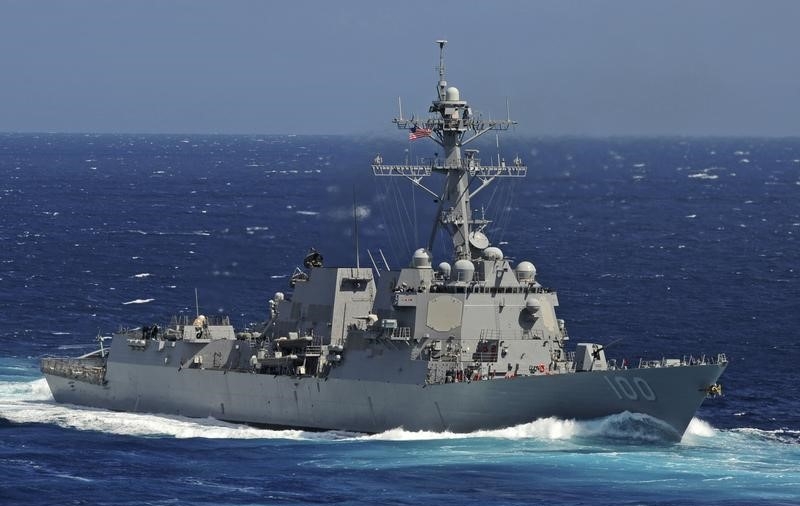A second U.S. Navy ship has been struck by an outbreak of the CCP virus while at sea, according to the Pentagon.
The USS Kidd, a destroyer currently deployed to the Caribbean on a counter-narcotics mission, is the second Navy ship to be hit by the virus, after an outbreak on the carrier USS Theodore Roosevelt that began last month.
In total 18 sailors on the Kidd have tested positive as of the morning of April 24, according to a Navy statement. “Testing continues, and we expect additional cases,” said the statement.
The outbreak on the 380-crew capacity destroyer was first confirmed by chief Pentagon spokesperson Jonathan Rath Hoffman during a briefing with reporters on April 24.
“There has been a sailor on the USS Kidd who had symptoms, was medevaced off of the ship to a medical facility in San Antonio where he was tested and unfortunately found to be positive for COVID-19,” said Hoffman.
A medical evaluation team was then flown out to the 500-foot destroyer to carry out testing.
The Kidd will now return to port, where a portion of the crew will be removed and the ship cleaned.
The Navy had learned lessons from other COVID-19 outbreaks, said Hoffman.
“Within 24 hours of the first person who was symptomatic on the ship, they had a medical team on that ship doing detailed analysis and contact tracing and testing of members of the crew,” he said.
Small numbers of sailors assigned to 26 ships that are all currently in port—not deployed— have tested positive for the virus, according to previous Navy statements.
The Pentagon is prioritizing testing and assessing of troops during the key window just before they are deployed.
All of the crew on the Theodore Roosevelt have now been tested, with over 800 positive results, one month after the first case of CCP virus onboard was identified.

“As of today, 100 percent of USS Theodore Roosevelt (CVN 71) crewmembers have been tested for COVID-19, with 840 total positive and 4,098 negative results (a small number of results are still pending),” said an April 23 Navy statement.
The number of crew members hospitalized by the disease has dropped from nine to four, with no sailors in the ICU.
A sailor assigned to the virus-stricken aircraft carrier in the Pacific died on April 13 four days after being found unresponsive and being admitted to intensive care.
Chief Petty Officer Charles Robert Thacker Jr. was the first and so far the only active-duty member of the armed services to die from the CCP virus.
Despite currently being temporarily sidelined in Guam as it is cleaned, the Roosevelt could still quickly be deployed if needed, Gen. Mark Milley, chairman of the Joint Chiefs of Staff, previously told reporters.
Carrier groups are key players in the United States’ overseas power projection and the geopolitical tussle with China in the pacific.
To ensure that the Navy has at least two carriers at sea and ready to go at a moment’s notice, the USS Harry S. Truman carrier group is currently being kept at sea in the Atlantic despite finishing deployment—keeping the crew safe from the reaches of COVID-19 and ready for action.
“The ship is entering a period in which it needs to be ready to respond and deploy at any time,” Vice Adm. Andrew Lewis, commander of U.S. 2nd Fleet said in a statement on April 13. “Normally we can do that pierside, but in the face of COVID-19, we need to protect our most valuable asset, our people, by keeping the ship out to sea.”
From The Epoch Times


